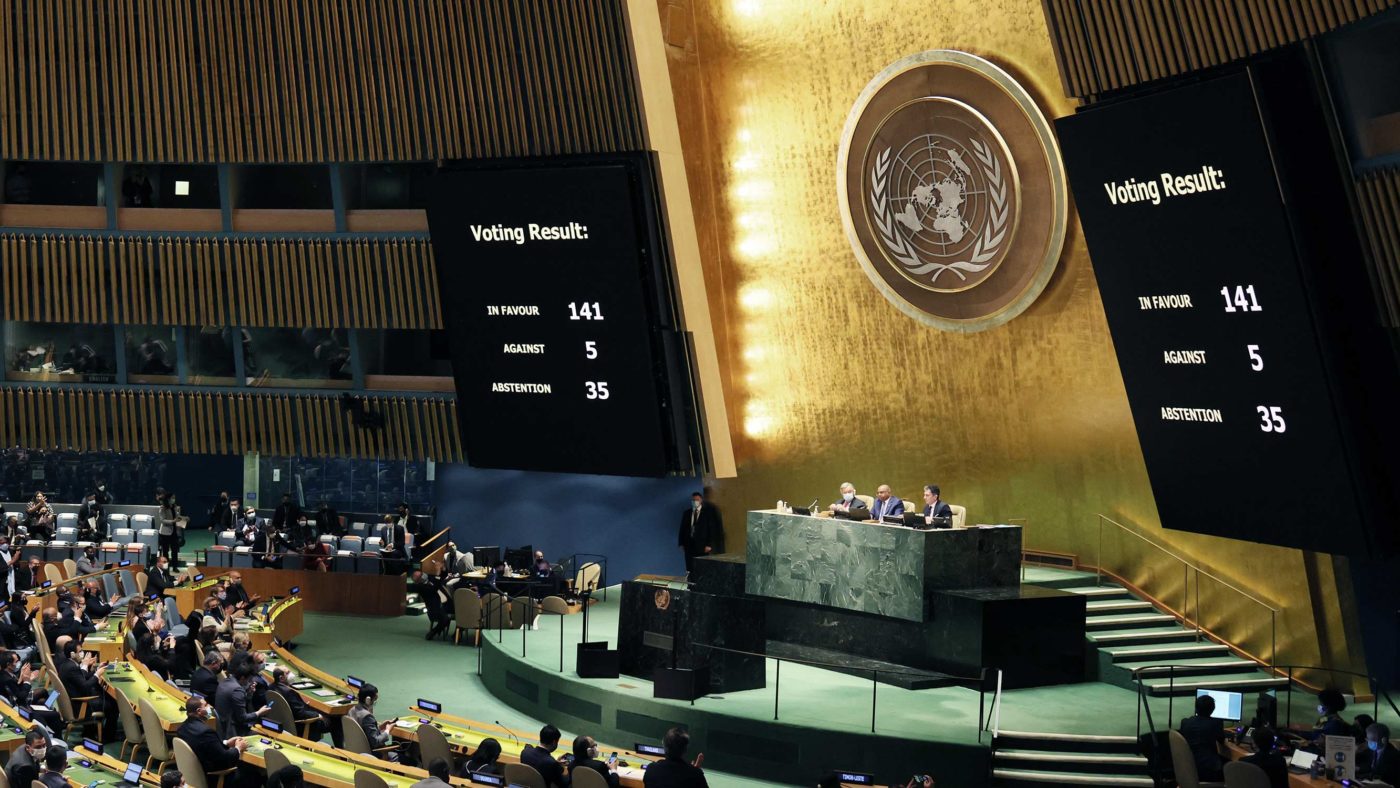Recent votes at the United Nation provide much food for thought for the UK’s foreign-policy establishment – and for anyone who thought the Commonwealth might provide an alternative framework for British strategy in the post-Brexit era.
The vast majority of countries – including the UK – voted in favour of a UN General Assembly resolution condemning the invasion of Ukraine and demanding the withdrawal of Russian troops. Aside from Russia itself, only four countries voted against the resolution: Belarus, Syria, North Korea and Eritrea.
However a number of nations, including some the UK considers important allies, abstained from the vote.
India’s abstention was part of a long-standing foreign policy tradition of maintaining a ‘special’ partnership with Moscow that dates way back to 1955. During the Cold War, India and the Soviet Union shared a strong diplomatic, military, strategic and economic relationship, including actively supporting Bangladesh’s 1971 liberation struggle against Pakistan.
It’s a similar story with South Africa, another prominent Commonwealth member who abstained. Although Cyril Ramaphosa’s neutral position towards the Putin regime is certainly contested domestically, it’s fair to say a degree of goodwill remains from the Soviet era. Not only did the USSR withdraw its ambassador following the 1960 Sharpeville massacre, but it also trained the Namibian SWAPO and Angolan MPLA fighters who fought alongside the armed wing of the African National Congress, uMkhonto we Sizwe (co-founded by Nelson Mandela in response to the massacre).
So it was not a huge surprise that nearby Namibia and Angola both also abstained. While we live in a radically redefined post-Cold War international system, the strength of Cold War memories and historic loyalties cannot be underestimated.
India – along with fellow Commonwealth members Pakistan, Namibia and Cameroon – also abstained on a UN Human Rights Council vote to urgently establish an independent international commission of inquiry on Russia’s invasion of Ukraine. So too did Gabon, which has recently expressed its desire to join the Commonwealth.
These votes were a stark reminder that while enduring ties with Commonwealth nations have been emphasised in pro-Brexit discourse (not least by the Prime Minister), the UK simply does not have the diplomatic clout and economic reach to foster closer political union in this context. There is of course a great deal of potential to deepen trading relationships and bolster forms of information and educational exchange – but the Commonwealth will never be a UK-led political association.
The invasion of Ukraine has shown that while ‘Global Britain’ may be a fine aspiration, the United States and European Union are still the main axes the UK should be operating on when it comes to taking on Putin’s revanchist war machine. Nor should we forget valued partners such as Japan. As well as having its long-standing territorial dispute with Russia over the Kuril Islands, Tokyo has adopted robustly anti-Kremlin positions since the invasion of Ukraine. Despite its own deep-seated anxieties over its militaristic past, it is providing protective defense equipment to Ukraine in the form of bulletproof vests and helmets. And while it is known for a restrictive border policy, Japan has announced it will accept Ukrainian refugees.
It’s still too early to read the runes on exactly what impact the horrific attack on Ukraine will have on international relations. One thing we can say with confidence, however, is that it has underlined Britain’s post-War foreign-policy identity. Of course, the Commonwealth is still an arena where the UK can make use of historic ties and exercise various forms of ‘soft power’ – but its strongest political and security alliances very much remain in Europe and North America.
Click here to subscribe to our daily briefing – the best pieces from CapX and across the web.
CapX depends on the generosity of its readers. If you value what we do, please consider making a donation.


